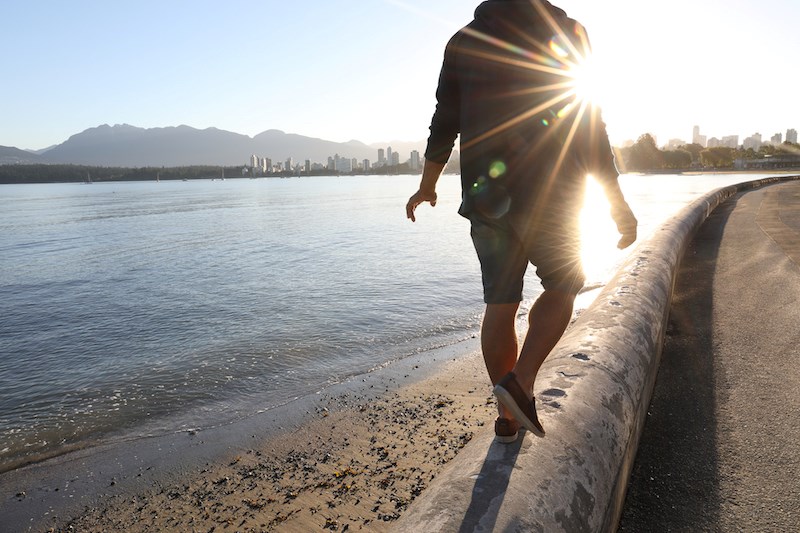Things are going to heat up a bit more later this week in Vancouver and in the surrounding Metro municipalities.
Environment Canada has issued a Special weather statement that affects all of Metro Vancouver, including the following regions:
- central including the City of Vancouver Burnaby and New Westminster
- North Shore including West Vancouver and North Vancouver
- northeast including Coquitlam and Maple Ridge
- southeast including Surrey and Langley
- southwest including Richmond and Delta
While Tuesday's forecast for the region calls for mainly sunny skies and a high of 24 C, 28 C inland, temperatures Thursday through Saturday are expected to pick up and rise 3 to 5 degrees Celsius compared to today, pushing them into the high 20's near the water to low 30's inland, according to the national weather agency.
The mini-heat wave is thanks to a strengthening ridge of high pressure heading our way.
Vancouver, however, will not see the highest temps in the region; those are expected in the Fraser Valley, Sea to Sky region, and inland Vancouver Island, notes the Special weather statement.
Over on Vancouver Island, and on the Gulf Islands, locals in the agriculture sector are already feeling the pressure of ongoing hot, dry weather, and water has become a precious commodity.
Vancouver is already poised to surpass some previous-set records for the number of consecutive days without precipitation, and with temps over 21 C daily.
Environment Canada is also cautioning Metro Vancouver residents to be aware of the perils of sustained high temperatures:
- Watch for the effects of heat illness: swelling, rash, cramps. fainting, heat exhaustion, heat stroke and the worsening of some health conditions.
- The risks are greater for young children, pregnant women, older adults, people with chronic illnesses and people working or exercising outdoors.
- Drink plenty of water even before you feel thirsty and stay in a cool place.



